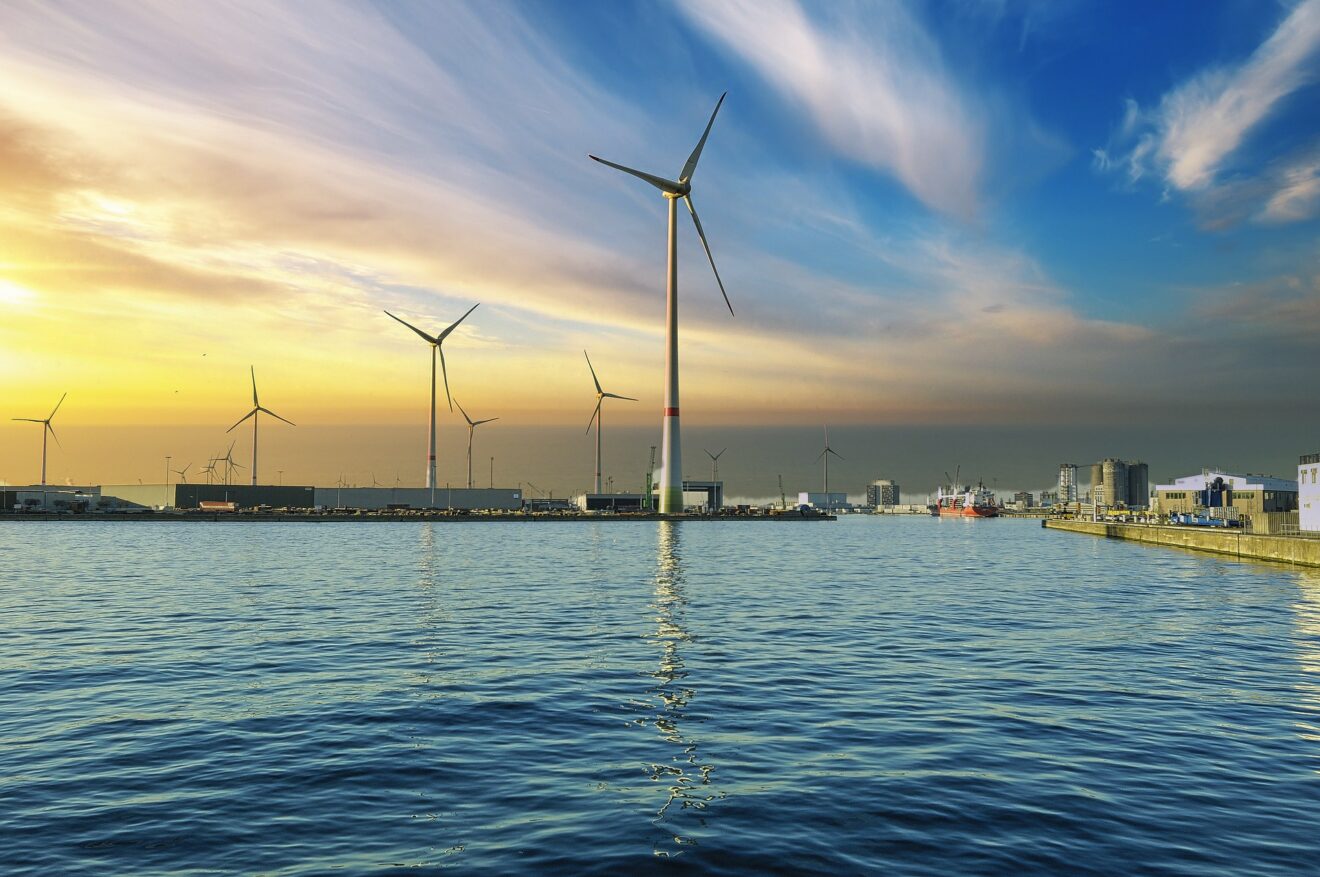Port of Antwerp-Bruges to reach Net-Zero by 2050
The port operations contribute 10% of Belgiums GHG emissions, and soon will be zero.
The Port of Antwerp-Bruges is one of the busiest ports in Europe, handling millions of tons of cargo each year. It is estimated that the port operations contribute 10% to the annual greenhouse gas emissions of the country of Belgium, so with such a significant role in the country’s emissions, the port recognizes its responsibility to address climate change and reduce its carbon footprint.
Thankfully, the port has a stated mission to reach net zero emissions by 2050.
To reduce its carbon footprint, the Port of Antwerp-Bruges is making significant investments in renewable energy. The port has installed wind turbines and solar panels to generate clean energy for use within the port itself. They also plan to invest in what is known as blue hydrogen and battery storage technology to store excess energy generated by renewable sources. These investments in renewable energy will help the port reduce its reliance on fossil fuels, which are a significant source of carbon emissions.
The port is also implementing energy efficiency measures to reduce its overall energy consumption. It is often far more effective to reduce energy consumption before transitioning to another type of energy. For example, the port has installed LED lighting in its facilities, which not only consumes less energy but also has a longer lifespan than traditional lighting (reducing waste). The port has also implemented a smart lighting system, which adjusts lighting levels based on available natural light. These measures reduce energy consumption/waste, all contributing to the port’s goal of reaching net zero emissions.
Low-carbon technologies will also help to reduce emissions from its operations, such as the use of off-highway electric vehicles for cargo transportation within the port instead of diesel versions. Additionally, the port has launched a pilot project for a “green energy hub,” which will provide ships with electricity and reduce the need for ships to run their engines while docked. These technologies will help the port reduce its reliance on fossil fuels and reduce its carbon emissions.
Circular economy principles will help reduce waste and resource consumption. The port has launched a project to recover and reuse materials from decommissioned offshore wind turbines. By reusing these materials, the port reduces waste and conserves resources. Additionally, the port has implemented a waste sorting system to separate waste into recyclable and non-recyclable materials. These circular economy principles help the port reduce its environmental impact and contribute to its goal of reaching net zero emissions.
Finally, the Port of Antwerp-Bruges is engaging with stakeholders to raise awareness and encourage sustainable practices. The port has launched a campaign to encourage customers to use low-emission vehicles when transporting cargo to and from the port. Additionally, the port has organized workshops and training sessions to educate employees and stakeholders on sustainable practices. These efforts help the port create a culture of sustainability and contribute to its goal of reaching net zero emissions.
The Port of Antwerp-Bruges is taking significant steps to reduce its carbon footprint and reach net zero emissions by 2050. Through investments in renewable energy, energy efficiency measures, low-carbon technologies, circular economy principles, and stakeholder engagement, the port is setting an example for other ports worldwide.
By adopting sustainable practices, ports can reduce their environmental impact and contribute to a more sustainable future.










